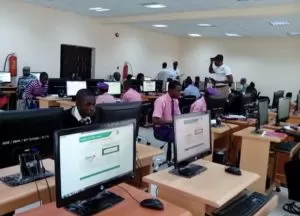Nigeria’s Inflation Rate Surges to 34.8%

Nigeria’s inflation rate has risen to 34.8% as of December 2024, according to the latest statistics from the Nigerian Bureau of Statistics (NBS). This significant increase is a notable concern for the country’s economy, as it indicates a sustained upward trend in the general price level of goods and services.
The NBS report revealed that the inflation rate rose by 1.71% points from 33.09% recorded in November 2024. This increase is attributed to various factors, including the lingering impact of the COVID-19 pandemic, global economic uncertainties, and domestic economic challenges.
Nigeria’s inflation rate has been steadily climbing, with a previous high of 34.19% recorded in June 2024. This trend suggests that the country is facing ongoing economic challenges that need to be addressed.
Implications of Rising Inflation
The rising inflation rate has significant implications for Nigeria’s economy and citizens. Some of the effects include:
- Reduced purchasing power: As prices rise, the value of money decreases, reducing the purchasing power of citizens.
- Increased cost of living: Higher inflation rates lead to increased costs of living, making it more difficult for people to afford basic necessities.
- Uncertainty for businesses: Rising inflation creates uncertainty for businesses, making it challenging for them to predict future costs and revenues.
Causes of Inflation
The NBS report identified several factors contributing to the rising inflation rate, including:
- Food inflation: The prices of food items, particularly staples like rice, maize, and cassava, have increased significantly.
- Import costs: The rise in global oil prices and other import costs has contributed to higher inflation.
- Domestic economic challenges: Nigeria’s economy is facing various challenges, including a large budget deficit, high unemployment, and infrastructure deficits.
Response to Rising Inflation
To address the rising inflation rate, the Nigerian government and monetary authorities must implement policies to stabilize the economy and reduce inflationary pressures. Some potential measures include:
- Monetary policy adjustments: The Central Bank of Nigeria (CBN) may need to adjust interest rates or other monetary policy tools to reduce inflation.
- Fiscal policy adjustments: The government may need to adjust its fiscal policies, including reducing the budget deficit and increasing revenue.
- Supply-side policies: The government can implement policies to improve agricultural productivity, reduce import costs, and address infrastructure deficits.
Nigeria’s rising inflation rate is a significant concern for the country’s economy and citizens. The government and monetary authorities must take proactive measures to address the underlying causes of inflation and implement policies to stabilize the economy. By doing so, they can reduce the negative impacts of inflation and promote sustainable economic growth.







